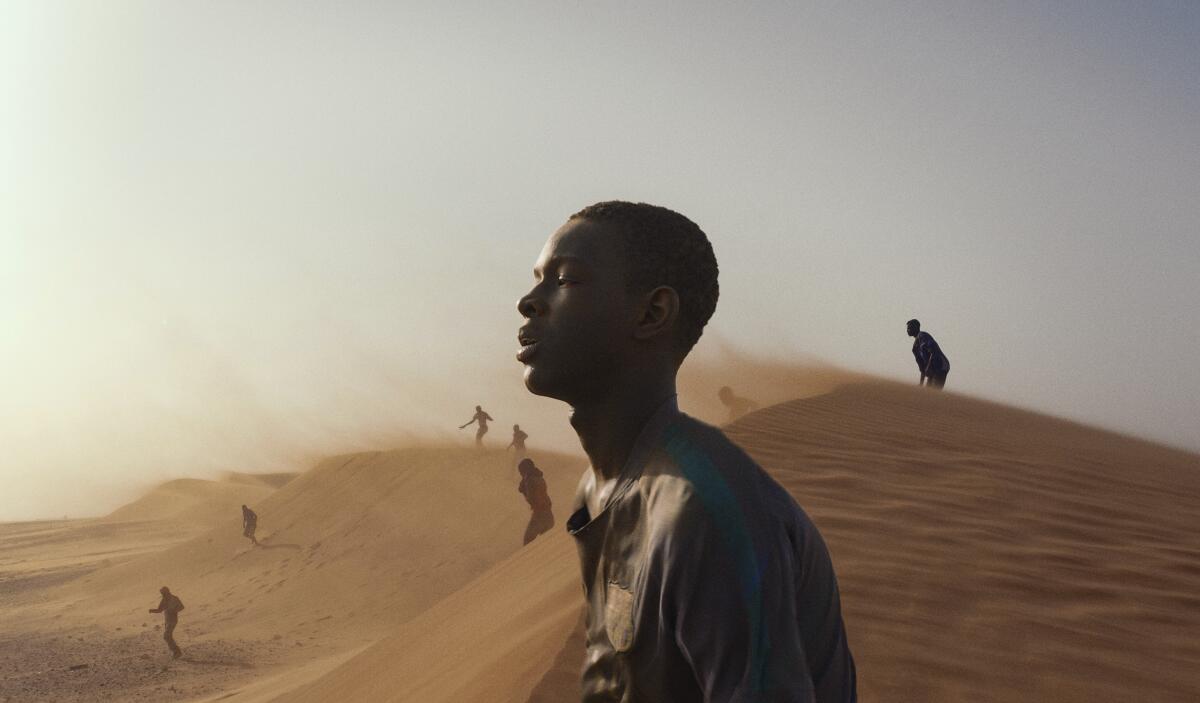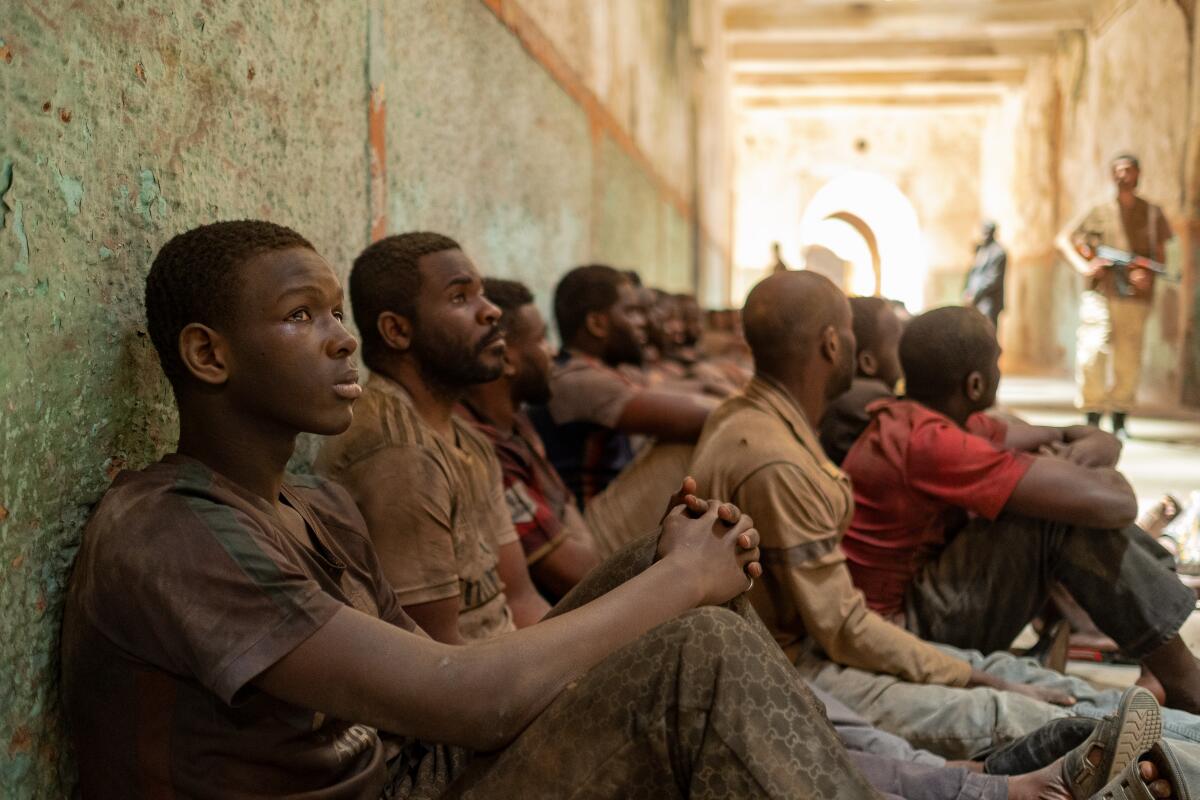‘Io Capitano’ captures the harrowing plight of African migrants in all its extremity

- Share via
Still basking in the afterglow of an evening spent dancing with her children, a Senegalese mother (Khady Sy) prepares for bed when her 16-year-old son, Seydou (Seydou Sarr), confesses his desire to migrate. She chastises him for even considering such a hazardous trip, but as her tears stream, she knows it’s already too late to stop him.
That’s the emotional opening of Italian director Matteo Garrone’s stirring, ultimately life-affirming “Io Capitano,” an Oscar nominee for international feature film, which diligently traces the teenager’s grueling, potentially deadly odyssey from West Africa to the coast of Libya. There, at a port that separates his past from the promise of a future, thousands from all over the African continent gather with the shared intent of crossing the Mediterranean to Europe.
Other acclaimed Italian productions — the 2016 documentary “Fire at Sea” or the drama “Terraferma” — have addressed the final stretch of the passage across the water. But Garrone is concerned with something that often escapes the headlines and statistics: the on-the-ground atrocities migrants endure to even reach that point of departure, including the traversing of a desert. (Cinematographer Paolo Carnera shoots the Sahara in wide shots peppered with barely discernible human figures, communicating its terrifying vastness.) Best known for his influential crime saga “Gomorrah,” Garrone wrote the screenplay based on real-life accounts from multiple individuals who survived to tell their tale of unfathomable perseverance.
None of that is known yet to the vivacious Seydou, who dreams of becoming a musician, and his cousin Moussa (Moustapha Fall), who prods his more cautious pal into action. The boys have saved for months to pay for the trip. Not entirely unlike his portrayal of young men in “Gomorrah,” Garrone foregrounds their brotherly bond as a driving force amid increasingly crushing obstacles. There’s an endearing purity to their goal of escaping together.

At every stop on the harrowing journey, someone different stands to gain financially. It’s a suffering-fueled economy, one that includes extortion, torture and a modern-day variation on slavery, all of which spring out of the migrants’ desperation not only to move forward but to not become another nameless body found far away from home. (And if you think this is only a “foreign” problem, U.S. audiences needn’t look too far south to find comparable examples of dehumanization.)
Throughout the unspeakable cruelty — and a few acts of kindness — young Sarr projects inextinguishable hope, holding on to the belief that on the other side of the water, on the shores of Italy, something worth all the sorrow may await him. It’s largely due to his revelatory performance, charged with unwavering fortitude, that a viewer can bear to watch “Io Capitano.” To think this is Sarr’s acting debut boggles the mind. (Deservingly, he won an award for emerging actors at the Venice International Film Festival, where “Io Capitano” premiered.)
We’ve mapped out 27 of the best movie theaters in L.A., from the TCL Chinese and the New Beverly to the Alamo Drafthouse and which AMC reigns in Burbank.
Garrone also has an affinity for the fantastical, as seen in his dark, fablelike “Tale of Tales” or a 2019 version of “Pinocchio,” and it’s evident in a pair of dream sequences that gracefully elevate the narrative to a spiritual level. One of them offers an exhausted woman in the desert the power of flight. She is weightless above the unforgiving sand. Another episode shows an angel delivering a remorseful message to Seydou’s mother.
For all the evil on display, though, Garrone never loses sight of the solidarity among migrants amid their constant exploitation: Seydou finds a lifesaving father figure in Martin (Issaka Sawadogo), a family man also on his way to Italy, and a community among his fellow travelers in Tripoli’s migrant shelters. His dawning awareness of others around him imbues him with a kind of heroism.
You can get the facts about these migrants anywhere, but Garrone knows the tool of cinema is more effective. By presenting these adolescents in all their fragility and strength, he comes as close as is possible to getting us to feel how they felt. “Io Capitano” is as unflinching as it is robust with empathy.
'Io Capitano'
Not rated
In Wolof and French, with English subtitles
Running time: 2 hours, 1 minute
Playing: In limited release
More to Read
Only good movies
Get the Indie Focus newsletter, Mark Olsen's weekly guide to the world of cinema.
You may occasionally receive promotional content from the Los Angeles Times.











